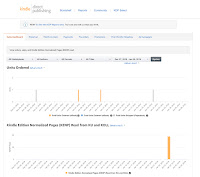The Body Doesn't Forget.
So many of us carry repressed and trapped emotions within multiple areas of our bodies, without even knowing it. Here are some of the most common areas of tension we experience:
1. Shoulder Tension = Burdens and Responsibilities
2. Neck Tension = Fear and Repressed Self-Expression
3. Upper Back = Grief, Sorrow, and Sadness
4. Middle Back = Insecurity and Powerlessness
5. Lower Back = Guilt, Shame, and Unworthiness
6. Stomach = Inability to Process Emotions
7. Inner Thighs = Fear of Vulnerability
8. Outer Thighs = Frustration and Impatience
9. Buttocks = Anger and Rage
YOUR BODY IS A MAP AND STORAGE HOUSE OF EVERY EXPERIENCE YOU HAVE EVER HAD.
So many of us carry repressed and trapped emotions within multiple areas of our bodies, without even knowing it. In fact, we can go years, even decades, completely oblivious to the blocked energy our muscles are holding on to. This repressed energy is responsible for countless ailments and chronic health conditions that cause us great suffering.
The fact is that your body doesn’t forget.
Your body is the most honest and obvious way to access trapped feelings and even traumatic memories. No matter how much you try to ignore, intellectualize or suppress how you feel, your body knows the truth.
If you are struggling with chronic tension in your neck, shoulders, back, thighs, legs, or any other area of your body, this article may help you get to the root of your pain, once and for all.
WHAT CAUSES CHRONIC MUSCLE TENSION?
According to various studies and papers, we develop chronic muscle tension as a result of four different causes.
The first cause is social conditioning. Social conditioning starts in early childhood and is reinforced throughout the rest of our lives by our parents, friends, teachers, family members, and society at large. A lot of the muscle tension that we develop is the result of unspoken social beliefs that we were taught to adopt as a way of being “acceptable” or likable. For example, many of us were taught that “only babies cry,” so as children, we learned to suppress our tears and sadness in order to “not be a baby.” Many of us were also taught that expressing anger is a “bad” thing as we were punished as children for expressing it. This form of conditioning is strengthened throughout adulthood, particularly in our workplaces where expressing anger is seen as “unprofessional” and potentially dangerous to our job security.
The second cause of muscle tension is trauma. Traumatic experiences can range from being spanked as a child all the way to extreme violence. Trauma may have been deliberately inflicted on us (e.g. rape or physical assault) or accidental (e.g. a car crash). When these traumatic experiences aren’t consciously dealt with, they can result in chronic fear, stress, and even occurrences of PTSD. This chronic anxiety, anger, and grief tend to get stored within the body resulting in muscle tension which contributes to numerous other illnesses such as fibromyalgia, digestive disorders, mental illnesses, and even cancer.
The third cause of muscle tension is psychological tension. Psychological tension is any form of anxiety, frustration, sadness or anger that we develop as a result of our perceptions. For example, we may develop psychological tension as a result of our thoughts regarding our coworker (e.g. they’re lazy) or of us being stuck in traffic (“this shouldn’t happen). Our automatic tendency to attach to these thoughts and take them seriously is what causes us psychological tension. The more negative, fearful or fault-finding our perspective is, the more tension we tend to store in our muscles.
The final cause of muscle tension is environmental stressors and habits. For example, our sedentary lifestyles (working at a desk all day) tend to exacerbate our physical pain because we aren’t giving our muscles a chance to expel the tension. Other habits such as poor posture, lack of sleep, drug use, unhealthy eating, and environmental pollution tend to increase the likelihood of us developing chronic muscle tension.
This theory you have read is nothing new, it has been written in the lines of the Bible and surveyed by doctors and psychologists, yet it should be considered by you who needs to challenge where you are in this life and how you will better navigate it.
I chalk this all up to kudos of life and this too shall pass.


Comments
Post a Comment